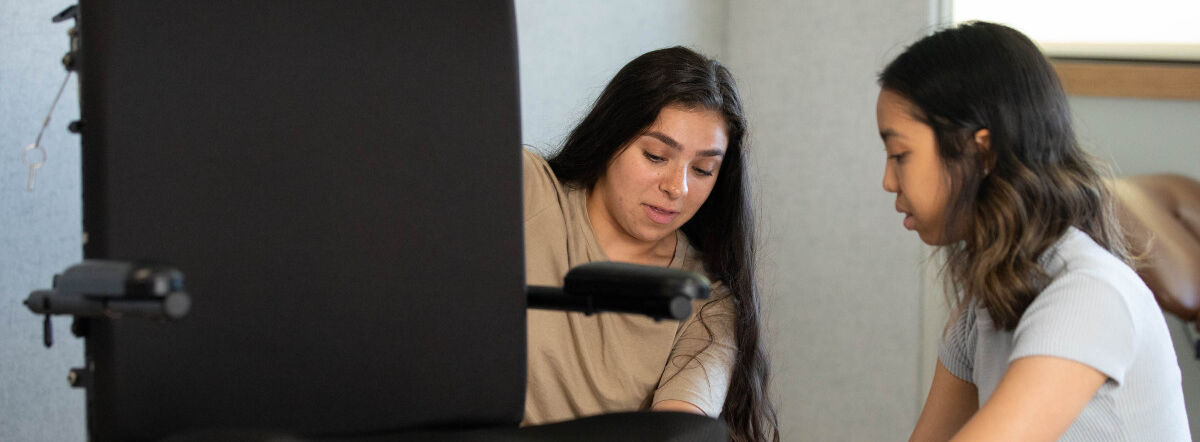Kick-start pilot projects with the Research Initiative Fund
What if you couldn’t do what you love to do? Support vital pilot projects that seek to improve health and well-being in daily activities.
Thanks to a generous benefactor, the Department of Occupational Science & Occupational Therapy is now able to triple donations given during the campaign – donating $2 for $1 you give – so if you have been thinking about supporting the Department but weren’t sure where to start, now is a great time to maximize your gift.
Project Description
The Research Initiative Fund (RIF) is a fantastic way to support new innovation in occupational therapy. Occupational therapy is dedicated to ensuring that everyone can participate in daily activities, and to design ways to help each of us have access to a fulfilling life. Whether through assistive technology, social justice, or pain and stress reduction, this initiative has the opportunity to fund research projects that develop a wide-range of tools, techniques and approaches that make a direct difference to people’s lives.
Each year, faculty from the Department of Occupational Science & Occupational Therapy can apply for up to $5,000 as seed funding to launch new research ideas or small pilot projects. This funding is important as it acts as a springboard for larger research studies, allows for early hypothesis testing and supports new researchers with the data to apply for bigger grants.
Previous projects supported by the fund include:
-
- Youth and mental health:
Novel programming for young job-seekers showed significant improvement in their mental health. Pilot data from this RIF study, led by Dr. Skye Barbic, was used to advocate for provincial and federal funding for employment as a core service for young adults receiving mental health services in British Columbia, and enabled the research to go to clinical trial.
- Social justice and inclusion for people with disabilities in the healthcare professions:
Research-based theatre was tested as an innovative and effective teaching tool and was found to powerfully engage audiences and significantly shift attitudes towards people with disabilities in a positive way. Led by Dr. Tal Jarus, the first iteration of ‘Alone in the Ring’ was created with the Research Initiative Fund, and has now been performed over 30 times to 2,000+ policy makers, university faculty, staff and students.
- Protecting the brains of vulnerable pre-term infants:
Clinical testing of a new brain monitoring system, designed to be used in the neonatal intensive care nursery showed extremely promising results. Dr. Liisa Holsti used the data to leverage additional funding from UBC Health to support several PhD and Masters students in order to broaden and publish the research, and has used the research to contribute to wider scientific development on monitoring infant brain health.
- Youth and mental health:
Challenges and Impact of Your Support
The Research Initiative Fund relies on donations in order to be awarded each year. Often, funding organizations are reluctant to fund projects that have not been tested on a small scale (as they want assurances that a project is likely to be successful), and require pilot data or trialed research designs as evidence. That’s where the Research Initiative Fund comes in.
Grants from the Research Initiative Fund not only support members of faculty to launch initial programs of research, but also encourages the development of interdisciplinary team projects or new methodology which lie outside of (or in-between) traditional funding opportunities. It is possible to fund high-risk and high-reward research on a much shorter timescale, allowing new ideas to build momentum quickly.
Your support is needed to continue funding these important projects. Each grant creates a catalyst for faculty to establish new programs of research and crystallize nascent research ideas. Your donation could kick start a project that goes on to change lives at a much greater scale.
About the Research Initiative Fund
The faculty team in the Department of Occupational Science & Occupational Therapy work at the top of their fields across many areas of health and social research. Our group of 15 scholars conduct research with patients and public members to ensure findings have a direct influence on health care. Each bring their own distinct perspective on the value of life activities and how doing those activities affect your quality of life. Life is most fulfilling when we are able to do activities that matter to us.
Research areas in the team include aging, assistive technology, social justice, digital storytelling with people living with obesity and osteoarthritis, self-management and prevention of chronic disease, rehabilitation following traumatic brain injury, immigration and Francophone minority communities, developmental coordination disorder and neuroimaging, barriers to full participation and engagement in occupation for people with disability, pain and stress reduction in preterm infants, improving health services delivery and policy, mental health, and the impact of chronic illness on participation in paid and unpaid work.
Occupational science and occupational therapy is focused on many aspects of human health and well-being, and there are exciting opportunities for new connections in interdisciplinary research. The faculty team is dedicated to finding ways to help people of all ages, and who live anywhere in the world, to do what they love to do, with the ultimate goal of improving participation for all.


